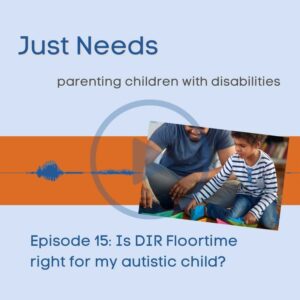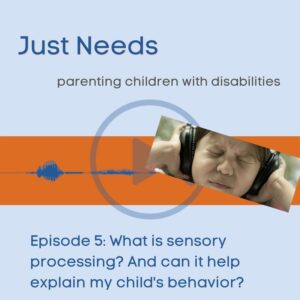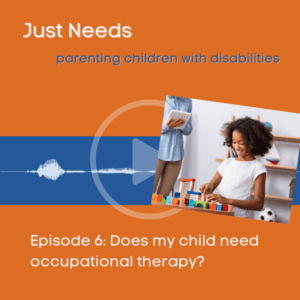Health Insurance for a Child With Disabilities: Easily Navigate Coverage and Services
Health insurance for a child with disabilities can be hard to navigate and expensive. Here’s what parents need to know.

By offering easy-to-follow information, advocacy, skill-building tools, and connections to other caregivers, Exceptional Lives provides families, caregivers, and professionals the support and compassion you need to see your children thrive.
What Health Insurance Is Available for a Child With Disabilities?
Health insurance for a child with disabilities can be expensive, and it can be difficult to find the best coverage. But right insurance can make a huge difference in the well-being of your family. Luckily, there are many options.
In addition to private health insurance, there are two nationwide coverage opportunities. No matter which state you live in, you can apply for Medicaid and the Children’s Health Insurance Program (CHIP). Both of these options provide free or low-cost health coverage for those who qualify, including people with disabilities.
- Medicaid provides coverage for both children and adults
- CHIP provides coverage for children and, in some states, pregnant women.
Medicaid is often available to children based on disability status even when the family makes too much money to qualify. In some cases, families actually enroll their children in Medicaid and continue their private insurance coverage as primary coverage with Medicaid as a back-up.
While these programs are available in all states, each state has its own benefits and requirements.
How Do I Apply For Medicaid or CHIP?
To apply for CHIP or medicaid you can create an account and apply through The Health Insurance Marketplace. If you don’t know what you are eligible for you are still able to apply on The Health Insurance Marketplace. The site will tell you what you are eligible for.
Step-By-Step Guides
Find Health Insurance for a Child With Disabilities
We know that it can get stressful for you and your child without the right resources and support. After all, it is difficult to navigate the healthcare system when you are unsure of you and your child’s rights and resource opportunities. So where do you start?
If your family does not have health insurance, here’s what you can do:
- Learn about different health insurance plans and learn how to apply.
- If your child has a disability, they may qualify for Medicaid, a state-run insurance program that has good benefits for people with disabilities – even if your family makes too much money to qualify for Medicaid otherwise.
- If you are undocumented (don’t have papers), you can get care at a Federally Qualified Health Center. They will not report your immigration status to anyone. You can put your address into this tool to find one near you.
If you are trying to navigate health care/services for your child with a disability, here’s the information you will need:
- Learn about different kinds of developmental therapies that might be helpful, like Physical Therapy, Occupational Therapy, and Speech Therapy.
- Reach out to your child’s doctor for referrals. If your child is under 3, you can also call your local Early Intervention program.
The Massachusetts Autism Insurance Law (ARICA) requires health insurance plans to cover medically necessary services for autistic persons.
Services covered through ARICA include pharmacy care, psychiatric care, therapies like Occupational Therapy, social skills groups, and more. You can use this tool to see if ARICA covers your insurance plan.
Is your child turning 18 soon? Here are steps to help them prepare for life as an adult:
- If your child has Medicaid because of their disability (not your income), they may not qualify for it once they turn 18. Call your local Medicaid office to learn about qualifications for adults with disabilities and whether they need to re-apply.
- If your child is on your private health insurance plan, the Affordable Care Act allows for them to stay on your plan until they turn 26.
- If your child is going to college, their school may offer less expensive plans. Ask the admissions office about what is available.
Search our Disability Services Finder for Louisiana (en español) or Massachusetts (en español) to find many kinds of disability-related services in your area.
If your child has a disability and needs health insurance or needs more health coverage
Here are some resources to help you out!
If you are trying to navigate health care/services for your child with a disability
Here are some resources to help you out!
If your child will be turning 18 soon
Here are some resources to help you out!
Medicaid
Medicaid is a federal program that provides public health insurance to people who have low income or a disability, or are pregnant or elderly. Medicaid generally has good disability benefits. Each state runs their own version of Medicaid, which may have a different name. For example, Medicaid is called Healthy Louisiana in LA and MassHealth in MA. More about Medicaid for children with disabilities.
PCA: Personal Care Attendant
A PCA is hired to help care for a person with a disability, usually in their home. Also often called a Direct Service Worker (DSW). The PCA (or DSW) helps with things like bathing, feeding, using the bathroom, and sometimes light housekeeping. PCA services might be covered by health insurance or state disability support programs. More about in-home help.
Secondary Insurance
An insurance, or health plan, that is in addition to your main one. For example, many people have private insurance and also Medicaid as their secondary insurance. This can help because different plans cover different services. More about health insurance for children with disabilities.
Parent and Provider Perspectives on Health Insurance for A Child with Disabilities
You’re not alone in this journey! By hearing from other parents and providers caring for a child with disabilities, you can learn from others’ experiences when applying for health insurance. Learn how other families navigate insurance-related challenges in our webinars, podcasts, and blogs.
If your child has a disability and needs health insurance or needs more health coverage
Here are some resources to help you out!
One Quick Question: “Will my young child with special needs need to do therapy forever?”
If your child has a disability, it may feel like they will be in therapy forever. In this 2-minute video, Anne Hindrichs and Kim Haynes from the McMains Child Development center in Baton Rouge give us the straight story.

Kitchen Conversations: Therapies and accommodations to support young children with disabilities in school
Are you aware of accommodations for students with disabilities? Learn about adaptations for special needs in the classroom plus more!

Save Hundreds on Health Insurance with MassHealth as Secondary Coverage
Caring for a child with a disability can get expensive. But having the right kind of health insurance can make a big difference. With so many plans out there, it’s hard to know which is the right plan, or if one plan is enough.The good news is that you have options. You may think that including…
If you are trying to navigate health care or services for your child with a disability
Here are some resources to help you out!
Is DIR Floortime right for my autistic child?
DIR Floortime is an approach to supporting autistic children, yet many parents of autistic children only know about ABA therapy. In this podcast, Julie McIsaac, Learning and Mental Health Consultant, talks about her experience as a certified DIR Floortime provider.Narrated by Christina Kozik; Written by Julie McIsaac

Need an ambulance for your autistic child? Here are 5 ways to make it easier on them.
I’m the mom of an autistic child. Here are 5 things I did to make it easier on him when he had an accident and needed an ambulance.

What are sensory processing issues? And do they explain my kid’s behavior?
Sensory processing issues make it difficult for our brains to process and filter information that comes through our senses. When our kids are overwhelmed or understimulated, it shows up in their behavior. In this podcast, we will talk about how to understand and meet our kids’ sensory needs. Narrated by Christina Kozik; Written by Julie…

Does my child need Occupational Therapy?
If your young child has a disability or delay, you may have been referred to Occupational Therapy. But what does occupational therapy mean for a child? In this episode, we’ll talk about all of the ways OT can make a difference for your child. Kim Haynes and Anne Hindrichs of the McMains Child Developmental Center…

If your child will be turning 18 soon
Here are some resources to help you out!
New dental help is available for disabled adults in Louisiana
Louisiana’s Medicaid Waiver program now offers better dental help for adults with intellectual/Developmental disabilities. Read more about how to get coverage.

Frequently Asked Questions about Health Insurance
Health insurance can be confusing, and lots of parents have questions. Don't worry, we have your back! Here's some of the questions families ask us most often.
Need more help? Click the button below to chat with an Exceptional Lives expert.
You can apply again through the Health Insurance Marketplace to find out if you qualify for extra coverage. Be sure to check the box that says “None of the above” when asked if you have coverage now on the Marketplace application. The system will tell you if you qualify.
Every state has different coverage benefits. Check out what your state covers.
If you are in Louisiana, learn about Healthy Louisiana.If you are in Massachusetts, check out the MassHealth page.
If your child has a disability, they may qualify for Medicaid through a waiver program. This means they do not consider your family’s income. You can apply for coverage for your child through your state’s Medicaid program or through the Health Insurance marketplace. If your child does not have a disability, but they do not have health insurance and your family meets the income guidelines for a program called CHIP, your child may qualify for Medicaid. Learn more about CHIP and see if you qualify.(Your state may have a different name for the program).
Yes. In most cases, your private insurance will be the primary plan. This means that plan has to for your covered expenses, and Medicaid may cover the rest of the cost. Learn more about having Medicaid and private insurance at the same time.
If you already have health insurance, call the phone number on the back of your insurance card and ask them about coverage for the services you are looking for. If you do not have health insurance, you can go to Healthcare.gov to see what kinds of services may be covered. If you think your insurance company is denying coverage for something they have to cover, contact the National Health Law Program for help.
If you don’t have health insurance coverage through your employer, you can go to Healthcare.gov and complete an application. They will ask you about where you live, your family’s income, and other questions that will determine what kind of a plan you qualify for and how much it costs. If you qualify for Medicaid, the system will tell you that when you apply.
The easiest way to start is to go to Healthcare.gov and fill out an application. You’ll tell them where you live, how much money your family earns, and some other information to help them figure out what kind of plan you qualify for and how much it costs. If you qualify for Medicaid, the system will tell you that when you apply.
Health insurance is important for everyone and particularly for children with disabilities. Having health insurance means:
- Your family is protected from high medical costs if you have an accident or other emergency
- You pay much less for medication, doctor’s visits, and other medical care you may need
- Your preventive care – like pediatrician visits and vaccinations – is free and can keep you from needing more (expensive) medical treatment.
Medicaid (or Healthy Louisiana) is a state and federally funded health insurance plan for people with low income or disabilities. Medicaid Waivers are a specific set of services for people with developmental disabilities. Also called Home and Community-Based Waivers, they provide services to allow a person to stay in their home rather than go to a facility like a nursing home. Services may include direct service workers, therapies, respite or job support.
You don’t have to have Medicaid to apply for Medicaid Waivers.
Depending on your family’s income, you may have to pay some or all of the premium for your child’s MassHealth coverage. Here’s how to apply and find out what it will cost.
If your child also has private insurance through your employer, you may qualify for MassHealth Premium Assistance, which will reimburse you for some or all of the cost of that premium.

















